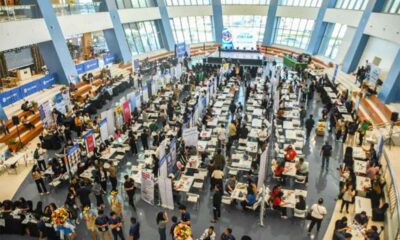News
WWF Continues Fight Against Pollution
The World Wildlife Fund (WWF) is constantly fighting the plastic pollution and also advocates for an extended producer responsibility scheme in the Philippines.
Plastic pollution have been a long time problem not only in the Philippines but throughout the planet. All ecosystems especially marine life have been greatly affected by plastic pollution.
According to a recent study, around 11 million tonnes enter the ocean every year, if neglected, by 2040 the numbers can be tripled which is equivalent to 50kg of plastic for every coastline meter worldwide.
Based on a 2015 modeling study, the Philippines is included in the top 10 countries contributing to plastic pollution. However, public and private sector have been challenged with increasing waste generation and the lack of waste management system. This calls for a comprehensive approach among policy makers, corporations, cities, and consumers to ensure that no plastics reaches nature.
WWF Philippines released a report entitled “Extended Producer Responsibility (EPR) Scheme Assessment for Plastic Packaging Waste in the Philippines”. The report highlights EPR as a critical and effective policy tool in holding manufacturers accountable for the end-of-life impacts of their plastic products and packaging.
The report shows that Filipinos consume a yearly average of 20 kg of plastics, from which 15.43kg/cap/year becomes waste. Insufficient recycling capacities for high value recyclables (i.e., PET, PP, HDPE) and the high volume of low value plastics (including sachets) are factors that affect the country’s low plastic recycling rate, at 9%.
The report further estimates that the Philippines leaks about 35% of plastic wastes into the environment. (MLC)

































